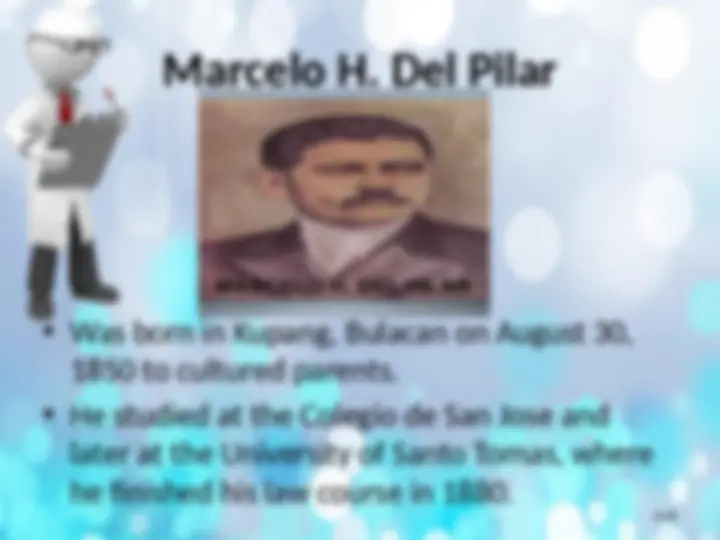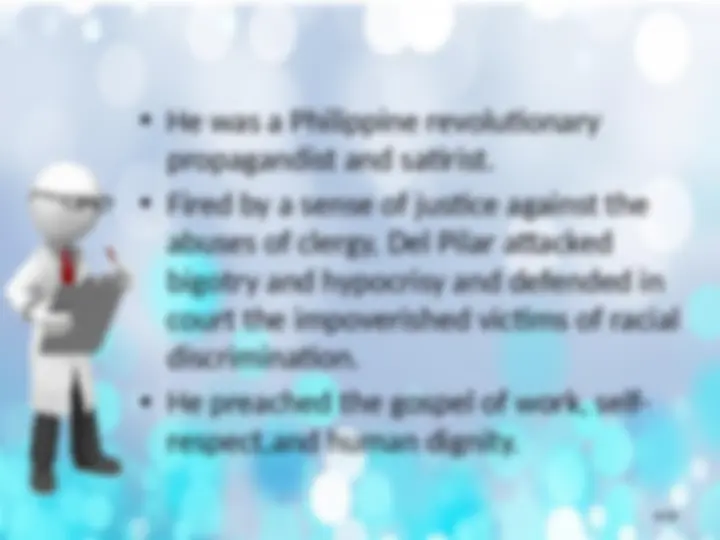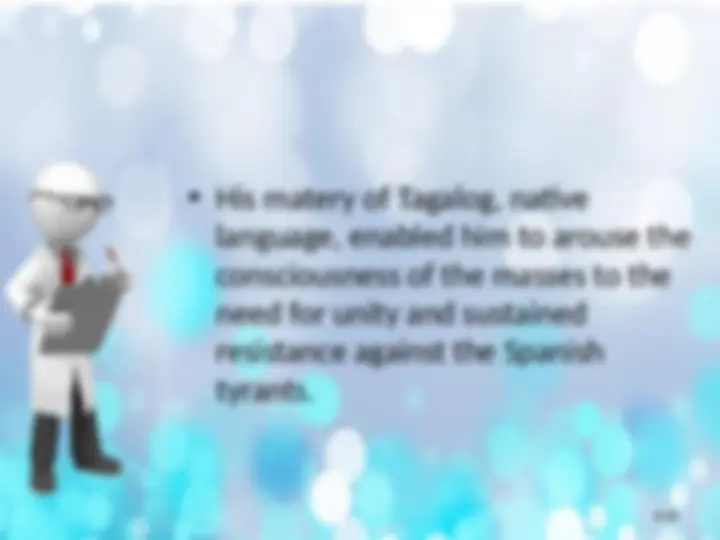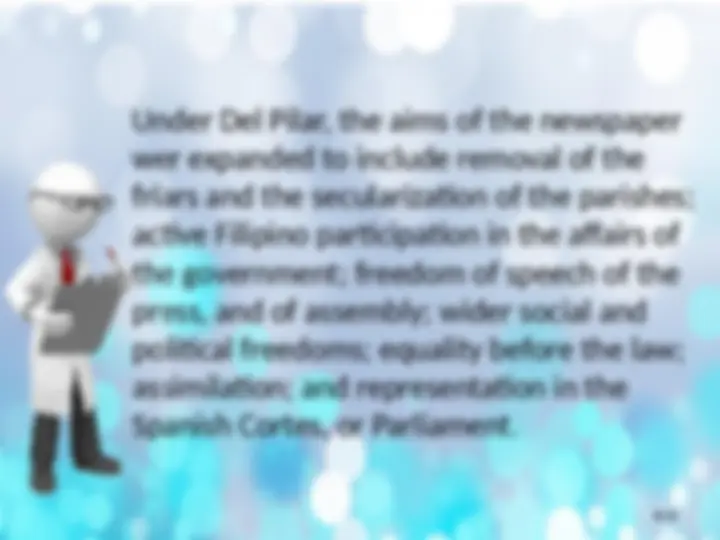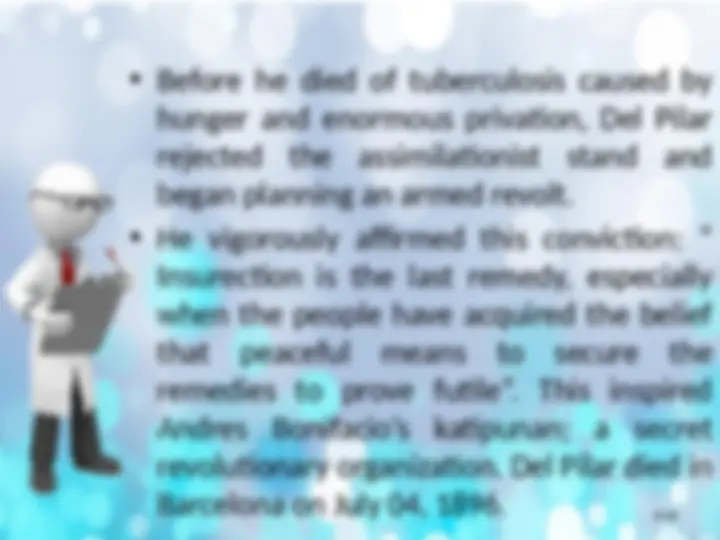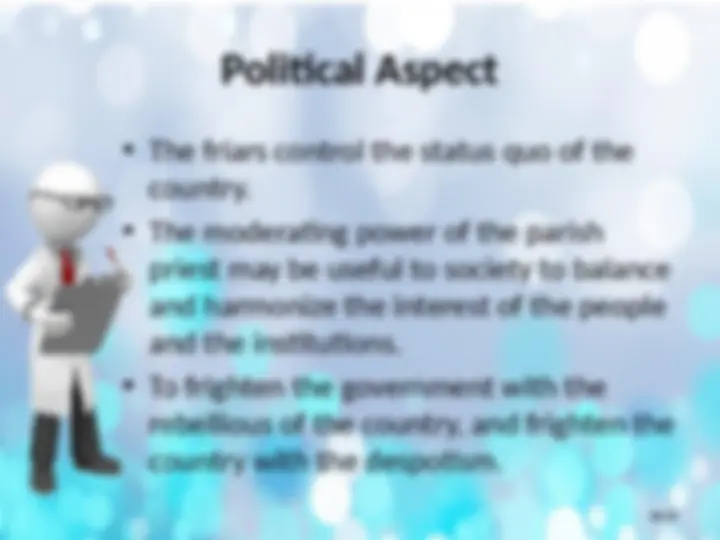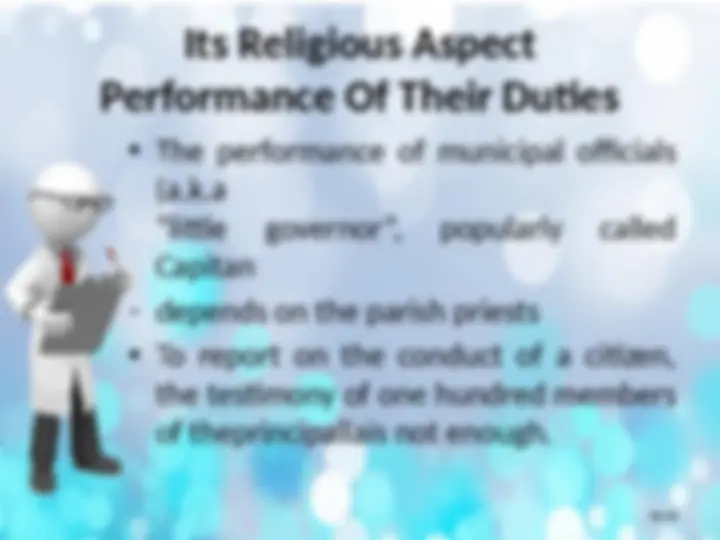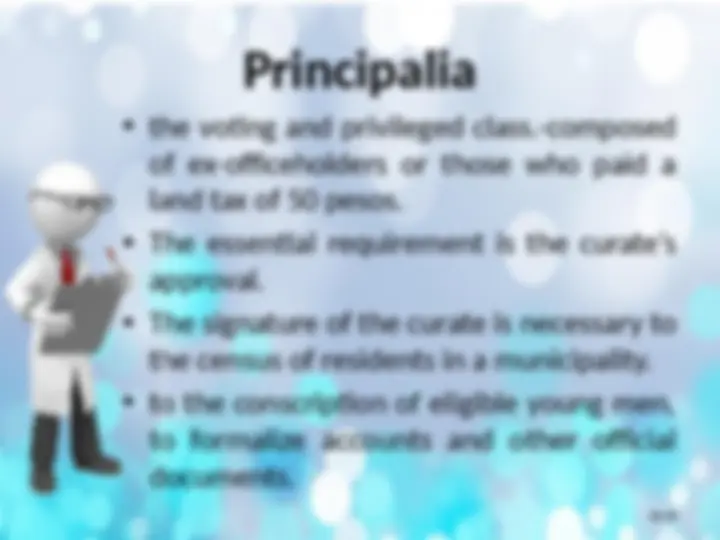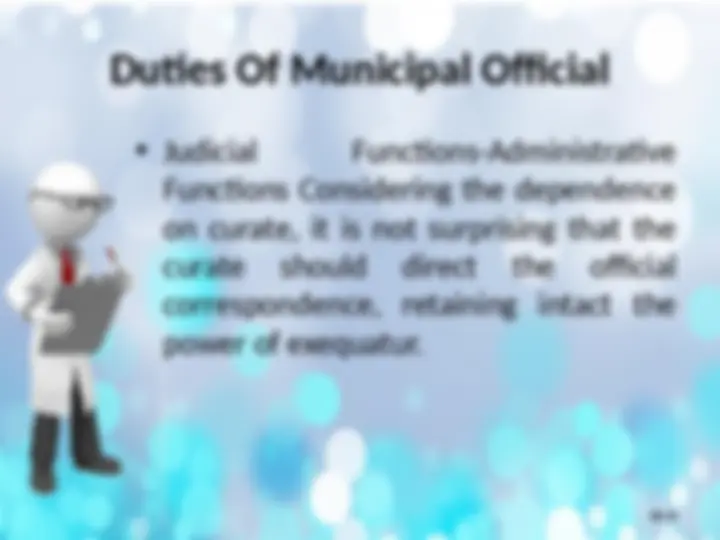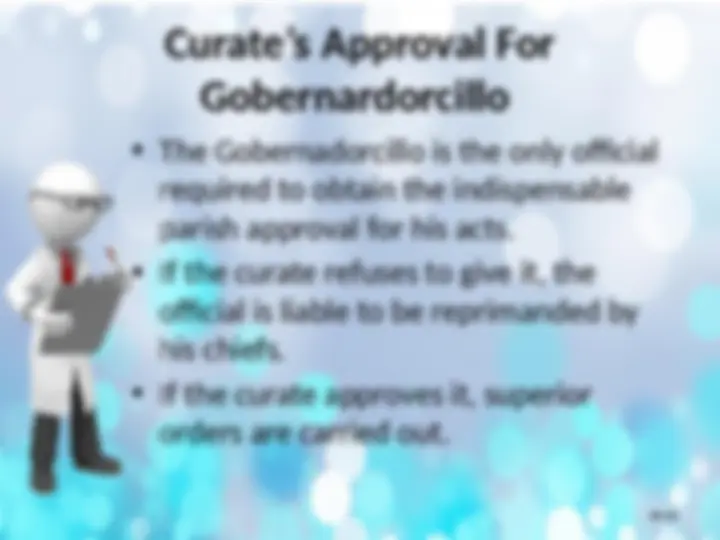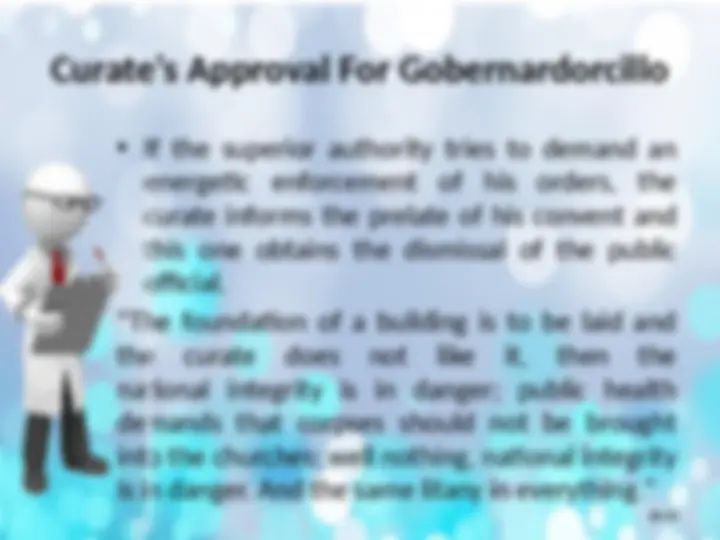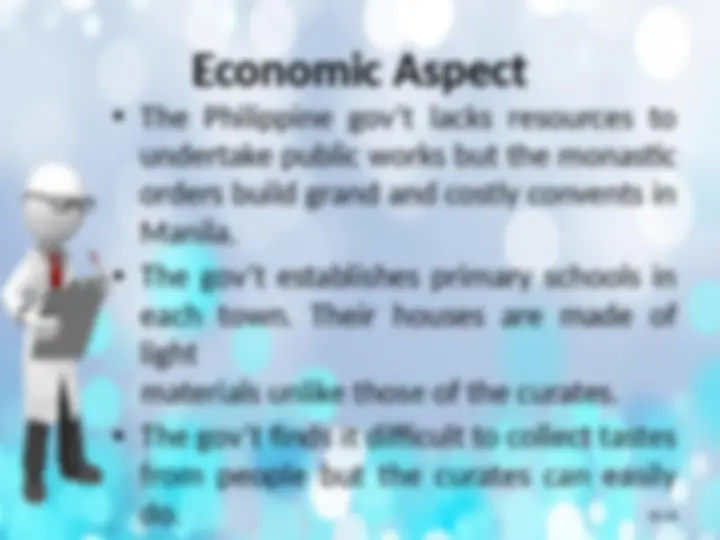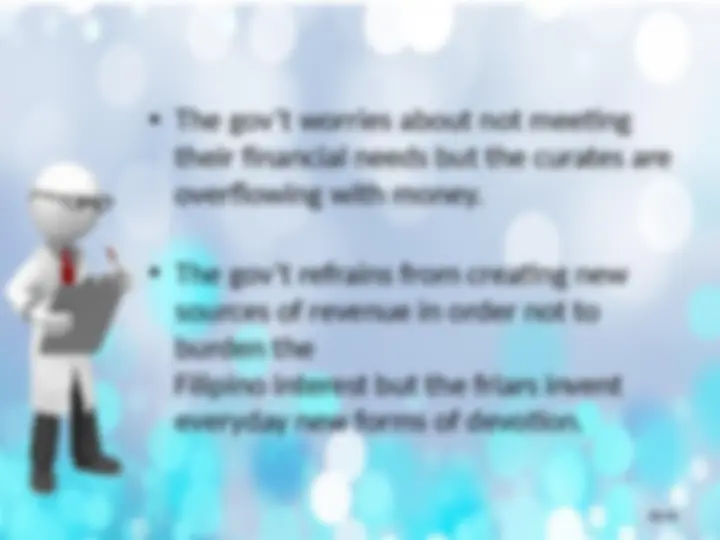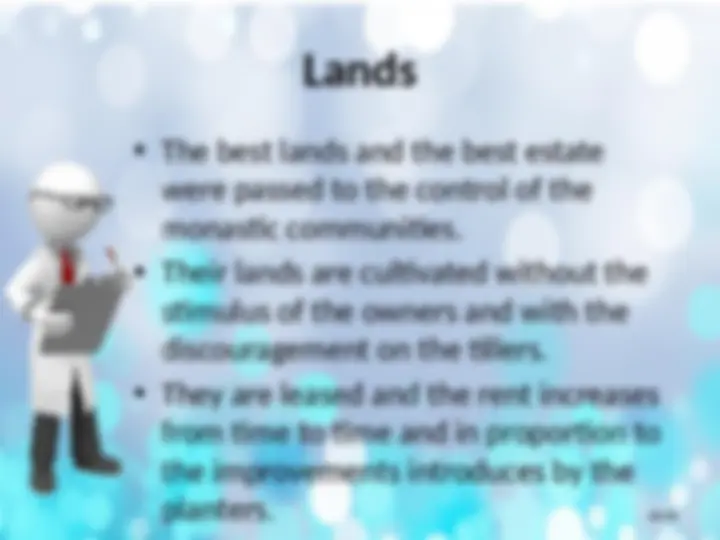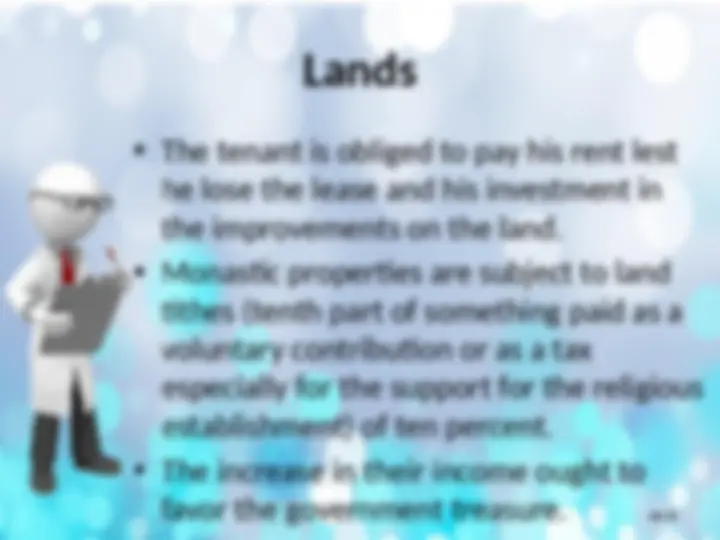Download Monastic Supremacy �in the� Philippines and more Lecture notes History in PDF only on Docsity!
Pagbuo ng Suliranin sa Pananaliksik Lesson
1 Monastic
Supremacy
in the
Philippines
La Sobernia Monacal en Filipinas
2
Marcelo H. Del Pilar
Political
Aspect
Daryll T. Candia
- (^) He was a Philippine revolutionary propagandist and satirist.
- (^) Fired by a sense of justice against the abuses of clergy, Del Pilar attacked bigotry and hypocrisy and defended in court the impoverished victims of racial discrimination.
- (^) He preached the gospel of work, self- respect,and human dignity.
- (^) His matery of Tagalog, native language, enabled him to arouse the consciousness of the masses to the need for unity and sustained resistance against the Spanish tyrants.
- (^) Fleeing from clerical persecution, Del Pilar went to Spain, leaving his family behind.
- (^) In December 1889 he succeeded Graciano Lopez Jaena as editor of the Filipino reformist periodical La solidaridad in Madrid.
Under Del Pilar, the aims of the newspaper wer expanded to include removal of the friars and the secularization of the parishes; active Filipino participation in the affairs of the government; freedom of speech of the press, and of assembly; wider social and political freedoms; equality before the law; assimilation; and representation in the Spanish Cortes, or Parliament.
Political Aspect
- (^) The friars control the status quo of the country.
- (^) The moderating power of the parish priest may be useful to society to balance and harmonize the interest of the people and the institutions.
- (^) To frighten the government with the rebellious of the country, and frighten the country with the despotism.
- (^) The lack of union between the people and the government.
- (^) Diversity of languages.
- (^) The privilege to vote is in the hands of the curate.
- (^) In performance of their duties, the municipal officials depend the parish priest.
Religious
Aspect
Christine Apple C. Caparoso
Its Religious Aspect
Performance Of Their Duties
- (^) The performance of municipal officials (a.k.a “little governor”, popularly called Capitan
- (^) depends on the parish priests
- (^) To report on the conduct of a citizen, the testimony of one hundred members of theprincipaliais not enough.
“To everything and for everything, the curate’s signature is an essential requisite.”
Condition For The Curate’s
Approval
- (^) There exists no ruling prescribing the conditions under which the curate should grant or withhold his approval
- (^) The curate grants it or denies it, according to his will or the order of his prelate.
Curate’s Approval For
Gobernardorcillo
- (^) The Gobernadorcillo is the only official required to obtain the indispensable parish approval for his acts.
- (^) If the curate refuses to give it, the official is liable to be reprimanded by his chiefs.
- (^) If the curate approves it, superior orders are carried out.
Curate’s Approval For Gobernardorcillo
- (^) If the superior authority tries to demand an energetic enforcement of his orders, the curate informs the prelate of his convent and this one obtains the dismissal of the public official. “The foundation of a building is to be laid and the curate does not like it, then the national integrity is in danger; public health demands that corpses should not be brought into the churches; well nothing, national integrity is in danger. And the same litany in everything."

